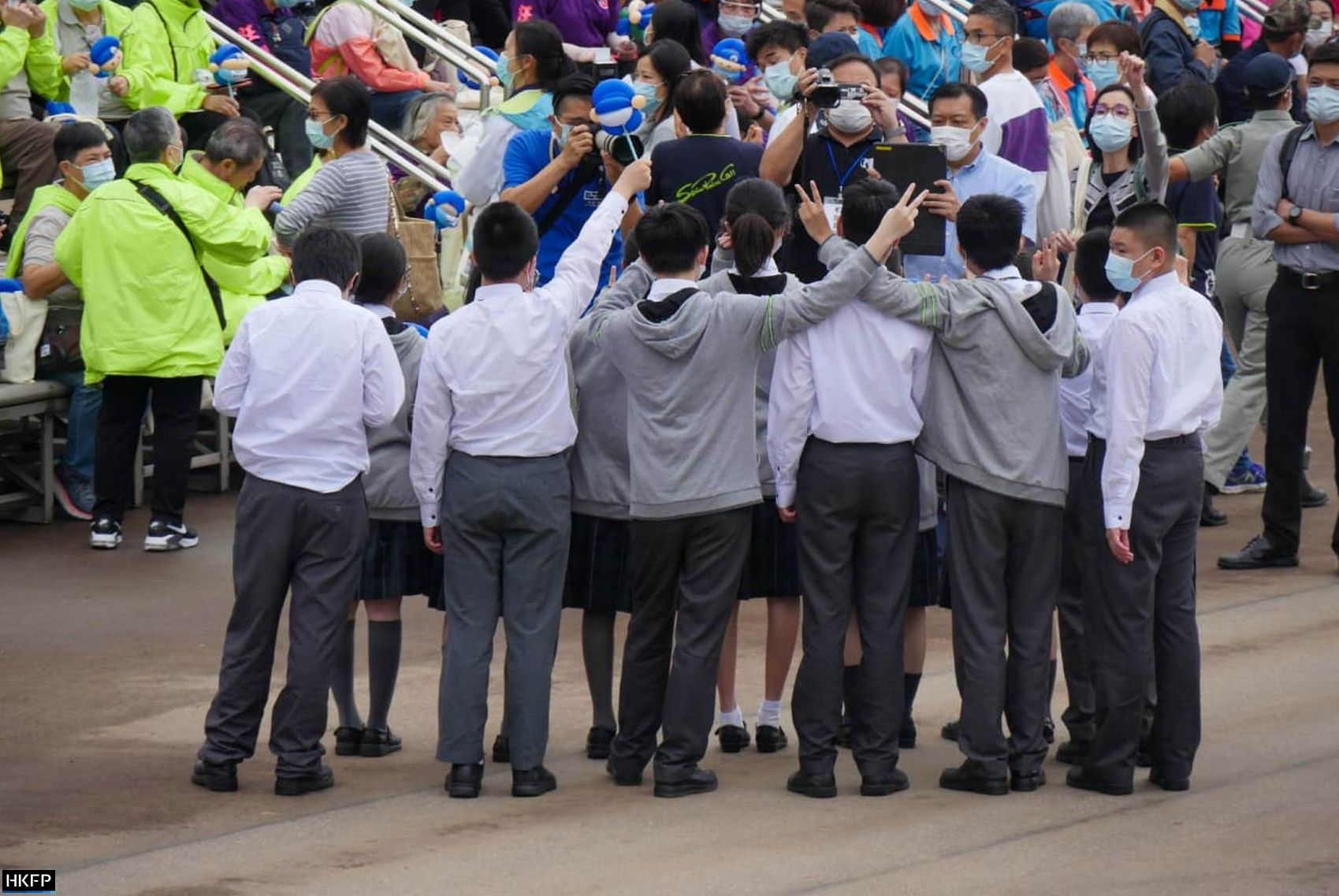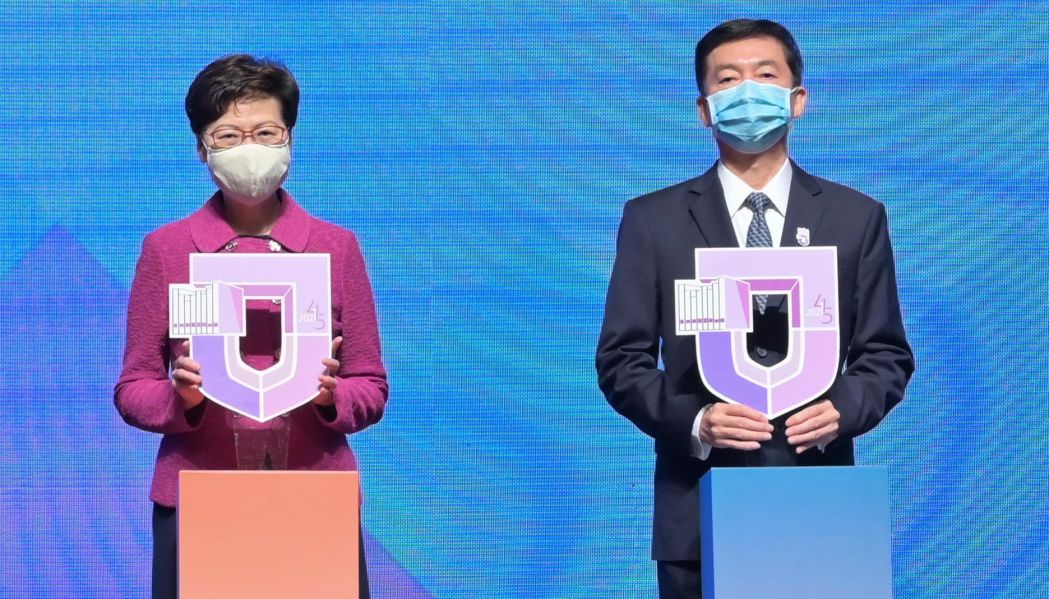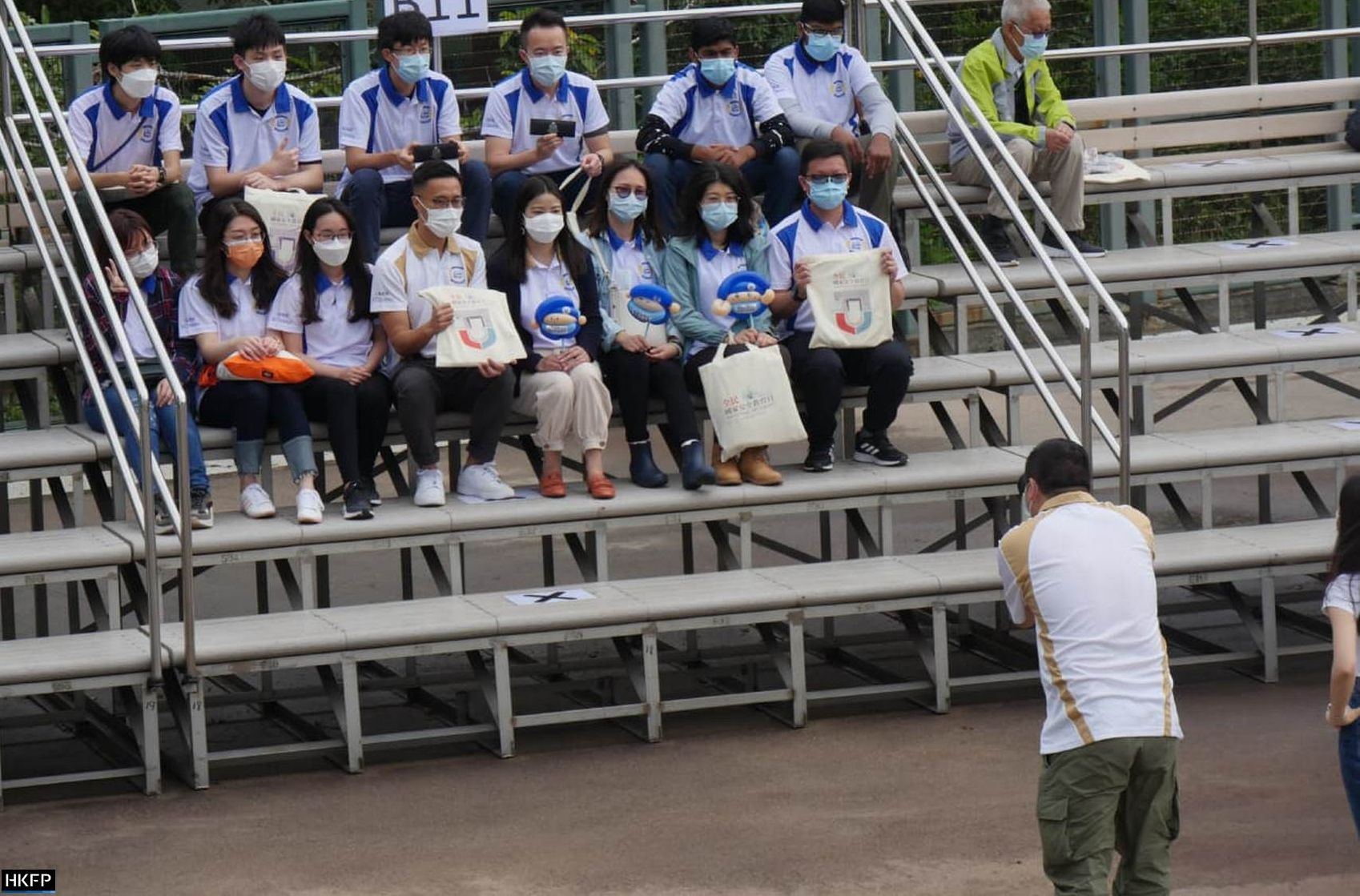Hong Kong students as young as three were among those learning about national security as part of Thursday’s National Security Education Day, under sweeping new guidelines to bring schools into line with the national security law imposed on the city last June.
Students will learn the basic concepts of the law and the details of its offences – subversion, secession, terrorism and collusion with foreign forces – as part of a campaign by the Education Bureau to instil patriotism at a young age.

“As a place for education, schools should enable students to understand that while having staunch support from the country [China], we, as nationals, also have the responsibility to safeguard national security,” the Secretary for Education, Kevin Yeung, told an assembly at SKH St James’ Primary School Thursday morning.

He said his department would continue to “adopt a multi-pronged and co-ordinated approach” in implementing national security education and the topic would also be included in subjects ranging from geography to biology.
The bureau also suggested that schools hold flag-raising ceremonies and sing the national anthem to mark the day.

As part of the campaign, the Education Bureau in February announced new rules instructing schools to inform police and parents about incidents involving “political propaganda” – including students chanting slogans, posting material with political messages and asking or coercing other children to follow their political stance.
Beijing inserted the national security legislation directly into Hong Kong’s mini-constitution – bypassing the local legislature – following a year of pro-democracy protests and unrest. The move gave police sweeping new powers, alarming democrats, civil society groups and trade partners, as such laws have been used broadly to silence and punish dissent in China. Around 100 people have been arrested under the legislation so far.
Sarcasm as dissent
An 18-year-old student who took part in the 2019 protests told HKFP his school had distributed stickers and bookmarks provided by authorities and played promotional videos about national security.

“I think, generally, secondary students have developed a [consensus] that no more public demonstrations or boycotts are to be held,” said the student, who asked to remain anonymous for fear of retribution. “To be honest, the student protest organisation in my school is no longer operating as there’s almost no space for public protests. I would say we are in the eye of a storm, suffering from low air pressure.”
However, he added that there are still ways for his peers to continue expressing their political views.

“For example, writing ironic or sarcastic sentences with a play on words, such as ‘I will loyally follow the party’s line’,” said the student. “Sarcasm is a form of subtle political demonstration. Students are way more creative than we can imagine, and they’re now living up to the protest slogan ‘We fight on, each in our own way’.”
Another student from Sing Yin Secondary School, who also chose to remain anonymous, told HKFP the government had implemented National Security Education Day “too fast”.

“Although the government wanted to promote it for long, I wasn’t expecting it when they announced that we would observe it in April,” the 18-year-old said. “The materials for students might need to be more diverse in viewpoints.”
In an interview with HKFP in February, Fung Wai-wah, president of the Hong Kong Professional Teachers’ Union, said the government had essentially shifted the responsibility entirely to schools.
“To have schools make all these efforts at gatekeeping will put immense pressure on schools,” Fung said. “Normal teaching work will be affected as schools are asked to take care of work like this.”
National security ‘Lennon Walls’
A number of schools took part in the “Together We Safeguard Our Nation and Homeland – Community Mosaic Wall” activity, an activity reminiscent of the pro-democracy Lennon Walls. Other events included quizzes and competitions on national security.

Stand News reported that the pro-Beijing Hong Kong Federation of Education Workers Wong Cho Bau Secondary School organised a five-day “National Security Week” with a series of events, including asking students to write a note about their opinion on “supporting the national security law, safeguarding my home.”
A form five student from the school wrote that “I am willing to obey all the country’s arrangements, and forever devote [myself] to the arrangements of the People’s Republic of China, and the party.”

A form two student wrote: “Hong Kong used to be a prosperous and stable society, but the ‘rioters’ obstructed and destroyed, making the former prosperity a ‘warzone,’ the national security law has appropriately sanctioned these ‘rioters’.”

“‘The national security law’ is a strong dose of medicine, to heal Hong Kong’s current sickness,” another form four student wrote.
According to Stand News, the secondary school has a reputation of being a “patriotic school” even though self-exiled activist Nathan Law was an alumnus.
Amid the patriotic displays, the League of Social Democrats and the Alliance in Support of Patriotic Democratic Movements in China staged a four-person protest in Wan Chai demanding full democracy on Thursday morning. They also called for political prisoners to be released and for human rights to be respected.
Additional Reporting: Candice Chau
Support HKFP | Policies & Ethics | Error/typo? | Contact Us | Newsletter | Transparency & Annual Report | Apps
Help safeguard press freedom & keep HKFP free for all readers by supporting our team
























